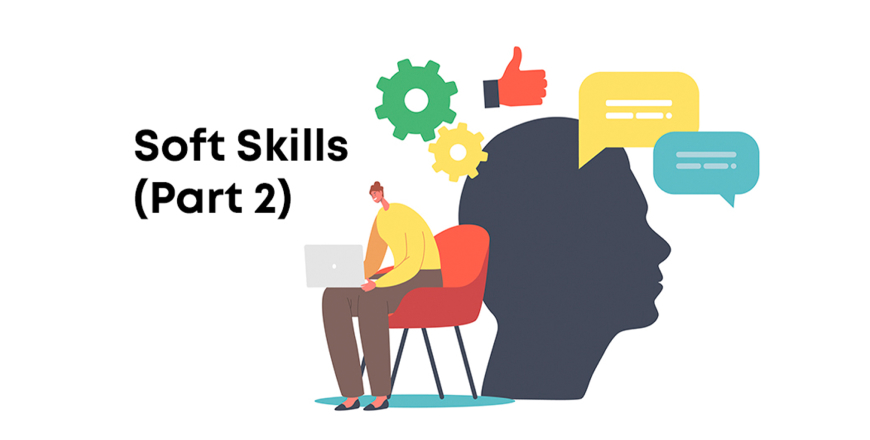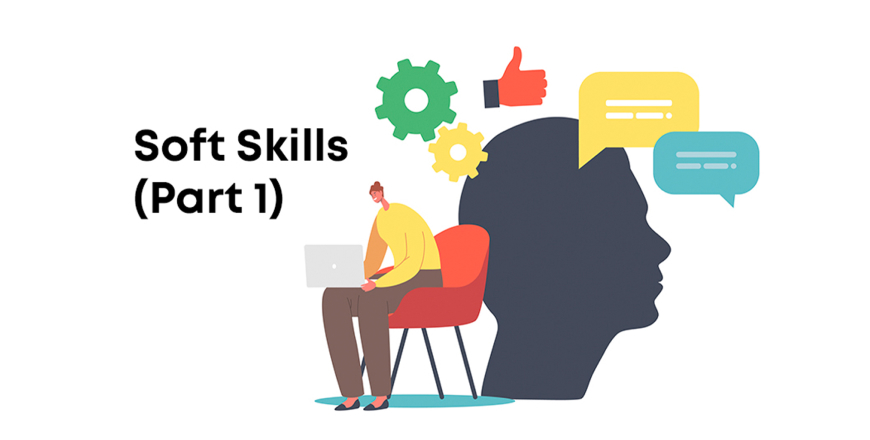Unlock Your Emotional Intelligence: Understanding Others

It is a comprehensive course that is designed to enhance the emotional intelligence of individuals through a profound understanding of interpersonal dynamics. Led by expert trainer Steven Jacobs, this course focuses on providing useful tools through which people can be more self aware about themselves and their surroundings, resulting in thriving professional and personal environments.
Target Audience
This course is made for the individuals who are:
- Business Professionals
- College Students
- High school students
- Entrepreneurs
- Anyone interested in learning more about personal development, leadership, and human resources.
Course Prerequisites
A prior completion of the foundation course, “Start Unlocking Your Emotional Intelligence: Building Self-Awareness,” can make things easier to understand. Additionally, a basic understanding of emotional intelligence is also essential.
Objective
The course will let you learn things such as:
- Developing an understanding of emotional drivers
- Tools to leverage the insight for effective teamwork
- Improved communication
- Enhanced leadership capabilities
Topics Covered
This course will cover the following topics:
– Introduction to the Myers-Briggs Type Indicator (MBTI) Personality Method
– Understanding personality differences
– The impact of extraversion vs. introversion on team level
– How sensing and intuition impact information processing
– Two Decision-making styles: thinking vs. feeling
– Orientation styles: judging vs. perceiving
– Learning of Team development models, including Tuckman’s stages of team development
Modules
- Introduction to MBTI Personality Tool & Agenda
Overview of the MBTI and its relevance in team settings.
- A Shift in Thinking
Exercises to challenge and expand your perspective on cognitive processing.
- The MBTI Dichotomies
In-depth exploration of Jung’s four MBTI dichotomies.
- Focus & Attention
Differences in focus and attention between extraverts and introverts.
- How We Take in Information
Understanding how sensors and intuitives perceive the world.
- The Way We Make Decisions
Insights into the decision-making processes of thinkers and feelers.
- The Way We Orient Ourselves to the World
Exploring judging vs. perceiving preferences.
- Personality Type Interpretation
Guidance on interpreting your MBTI results and their implications for teamwork.
- Strategizing for Team Success Using Myers-Briggs
Practical application of MBTI insights to enhance team collaboration.
- Tuckman’s Team Development Model
Understanding the stages of team development and their significance.
- MBTI and Team Stages
Analyzing challenges and dynamics at various team stages.
- Takeaways & Action Items
Strategies for applying your newfound knowledge in real-world scenarios.
By the End of This Course
Learners will be equipped with the right tools and skills in order to assess their and others personality traits and behave accordingly for a better work culture that includes enhanced collaboration, communication styles, and leadership skills for different teams.
Enroll Now
Make a space for yourself and others by being more self-aware and thrive in both the professional and personal lives. So, enroll in this course right away and to open new paths of life for yourself.
Introduction to MBTI Personality Tool & Agenda
Steve Jacobs, President of Global BioPharm Solutions, explains his background and how the Myers Briggs Type Indicator applies to working in teams.
A Shift in Thinking
Shift your perspective on how people think and process information with this thought-provoking exercise.
MBTI Instrument
This lesson discusses what the MBTI is and what it is not.
Learn the history of how the MBTI was developed.
Steve Introduces you to Jung’s 4 MBTI dichotomies in this brief lesson.
Focus & Attention
Understand how the focus and attention of extroverts and introverts differ from one another.
This lesson explores the difference in preference between extroverts and introverts regarding focus and attention.
In terms of values, style, and more, these are the key differences between extraversion and introversion.
How We Take in Information
Find out how sensers and intuitives take in information and present it.
With a simple activity, Steve explores the differences in how sensors and intuitives may perceive an image.
Learn more about how sensers and intuitives see the world.
The Way We Make Decisions
Steve details what the main focus is for thinkers and feelers when making decisions.
How do thinkers and feelers make decisions? Steve outlines the two’s preferences in decision-making.
Understand how thinkers and feelers perceive each other, as well as where their values and approaches lie.
The Way We Orient Ourselves to the World
This lesson reveals how those with perceiving preferences and judging preferences orient themselves to the world.
Delve into the preferences of judging and perceiving folks by considering how you would plan a vacation and what that says about your preference.
Steve sums up the major differences between judging and perceiving.
Personality Type
Once you have your four-letter personality type, how do you interpret your results of the MBTI? Steve provides examples.
Find out if your personality type can change, and how to find your “best fit” if you’re between two personality types.
Learn about the broad spectrum of abilities that leaders need to successfully lead any team, regardless of preference.
Discover which personality types are most common in the U.S., including which types most executives are.
Summary
Steve hopes that the first portion of the presentation has helped you realize what you’re wired for and what your thinking style is.
Introduction to Strategizing for Team Success Using Myers-Briggs
Get ready to take what you learned about yourself and your MBTI and apply it to how you can work on your team.
Tuckman’s Team Development Model
You may have never heard of Tuckman’s Team Development Model, but maybe you know it by a different name! Steve explains the stages of this model.
Understand which part of Tuckman’s Team Process is the most essential for moving through the stages.
Review the MBTI preferences with Steve, before we make the connection to team stages.
MBTI and Team Stages
Discover what challenges may arise in an ESFJ-managed team in the forming stage.
Uncover what challenges may occur in the storming stage with a highly empathetic team led by an ISTJ manager.
Using the example of a heavily intuitive team with an INFJ manager, find out if this team has what it takes to move on to the performing stage.
What does a wildly successful team look like in the performing stage? Steve also discusses what happens if a team member is lost or gained.
Takeaways & Action Items
Going forward, Steve explains how you can thrive with the knowledge of your thinking style and working in teams.


